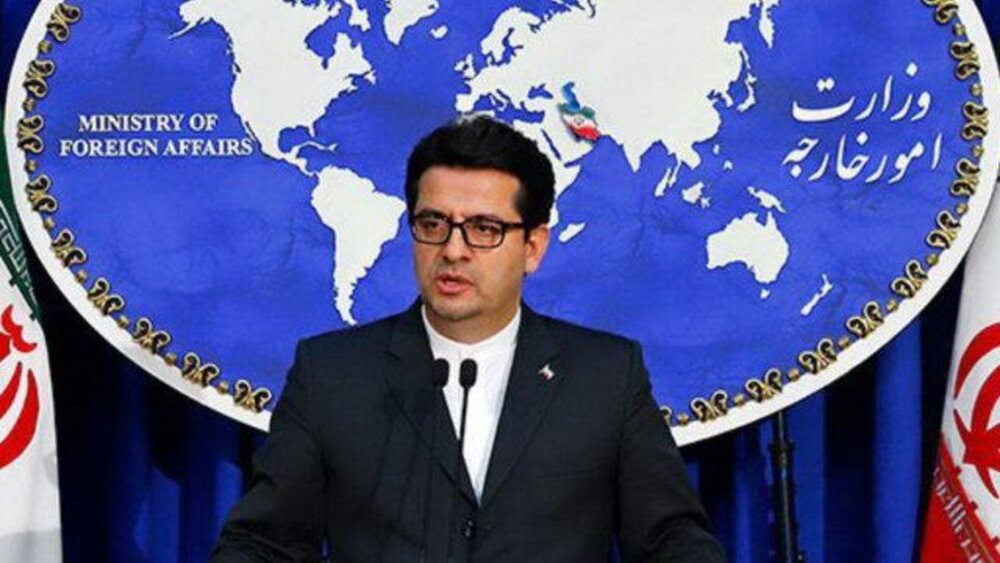Tehran: U.S. regime to soon kneel in front of Iranian nation

TEHRAN — Foreign Ministry spokesman Abbas Mousavi has censured the U.S. regime for relying on “knee on neck” approach to its people and other countries, saying Washington will soon kneel in front of the Iranian nation.
“A Govt whose policy is relying on 'knee on neck' of either its own ppl or others around the globe europe-africa should be indeed happy w/#EconomicTerrorism & pressure on the public,” Mousavi said via Twitter on Friday.
A Govt whose policy is relying on 'knee on neck' of either its own ppl or others around the 🌍 should be indeed happy w/#EconomicTerrorism & pressure on the public. But you see that not the Iranians' neck, but your knee was wrung. You will soon kneel in front of Iranian Nation. pic.twitter.com/Hrxqq4uLqW
— S.A MOUSAVI (@SAMOUSAVI9) June 12, 2020
“But you see that not the Iranians' neck, but your knee was wrung,” he said. “You will soon kneel in front of Iranian Nation.”
The spokesman attached a photo of recent remarks by U.S. special representative for Iran Brian Hook, in which he said that the U.S. is happy with the results of the sanctions imposed on Iran.
Hook also said U.S. policy toward Iran has weakened the country and has affected its support for Lebanon’s Hezbollah.
On May 8, 2018, U.S. President Donald Trump walked away from the internationally-backed Iran nuclear agreement, officially called the JCPOA, and introduced a “maximum pressure” policy against Iran in order to force Tehran to negotiate a new deal.
On May 8, 2019, Iran started to remove curbs on its nuclear program. It happened exactly one year after the U.S. abandoned the JCPOA and imposed the harshest sanctions in history against Iran in line with the Trump administration’s “maximum pressure” campaign on Tehran.
Earlier this week, Hook said the United States is working to renew the arms embargo on Iran, adding that sanctions on the Islamic Republic had produced “excellent results”.
“The sanctions on Tehran have led to excellent results and we have deprived the Iranian regime of billions of dollars thanks to the sanctions,” he remarked.
He also said Trump had been “very strong against Iran,” adding that “the Iranian regime is languishing under great pressure and the door is open to diplomacy ... President Trump will continue to pressure and Iran must respond.”
Meanwhile, Tehran has strongly rejected the U.S. president’s calls for talks under pressure, arguing that it was the U.S., not Iran and other parties to the nuclear pact, that left the negotiating table.
MH/PA
Leave a Comment